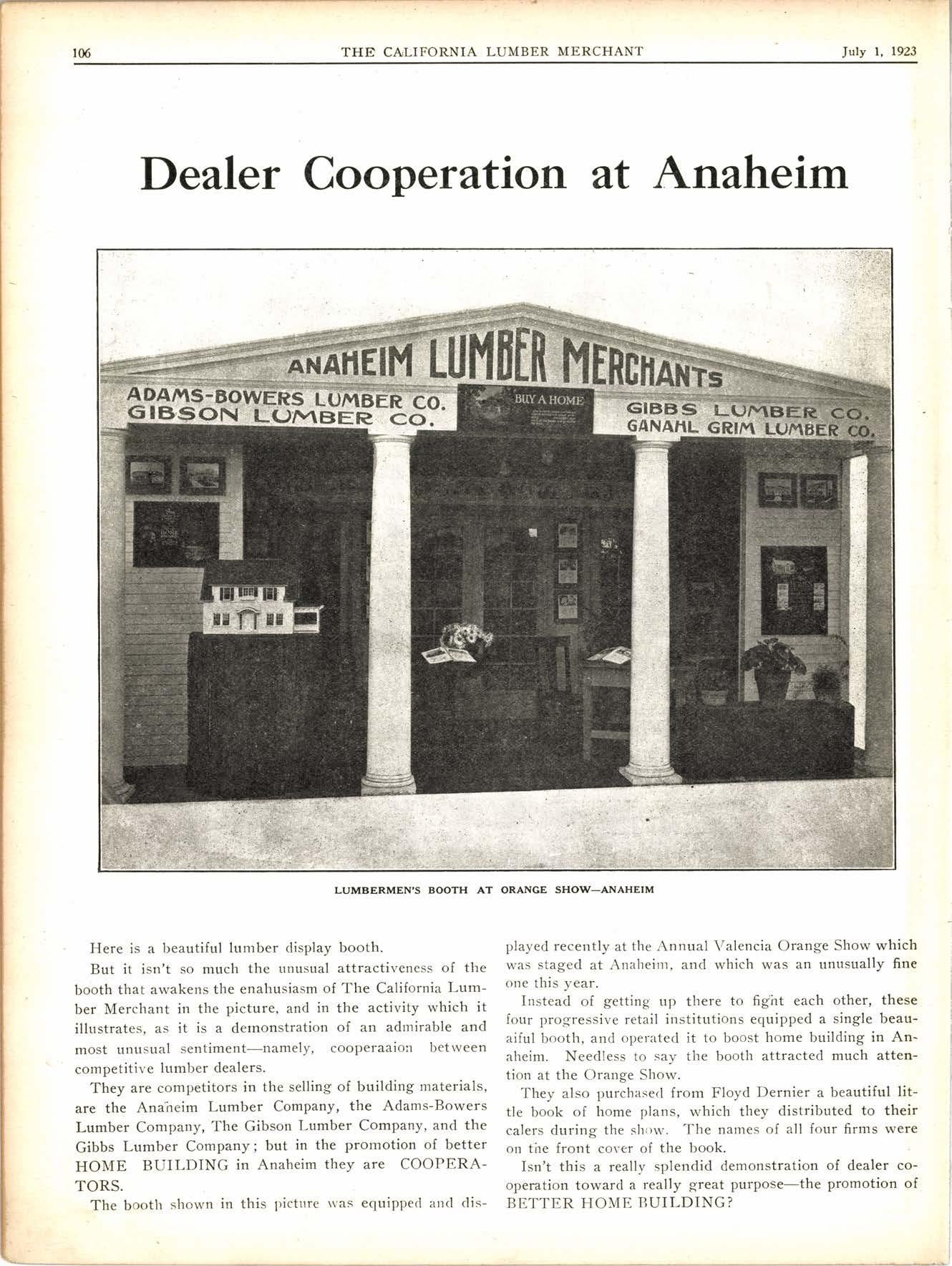
2 minute read
Progress in the American Hardwood
W'hen E. E. Taenzer established the American Hard-wood company in Los Angeles eight years ago be brought with him a generation of experience in the hardwood business in Memphis and other Southern producing centers, besides two wide-awake and energetic sons who have helped him to built up a wonderfully successful institution.
Although a comparatively jroung man, Mr. Taenzer is one of the pioneer hardwood operators in the South; he was one of. the organizers and one of the leading spirits in the National Hardwood Lumber association several decades agq as well as one of the prime movers in the National Hardwood Export Association.
When he came to Los Angeles in 1915 he had visions of living a life of contented retirement. He organized the American Hardwood Company with the view of giving his .capable and ambitious sons-C. R. ("Bob") and E. Itn -a good; running start in business, but almost from' the outset the new institution made such demands upon his time thaa he ,iras been, and is today, probably the most active factor in the enterprise.
It took only four years for the new institution to outgrow its ,original quarters at Fourteenth and Alameda streets, and in 1919 the ,move was made to the present modern plant, yard and office on East Fifteenth street, just east of Alameda.
What a visitor sees in going to the American Hardwood Company's plant is not only one of the rnost efficient organizations in California but one of the most modern yards ,and one of the best assortments of hardwood and soft pine stojks carried by aly single institution in the country.
The big dry shed has been the model for many similar storage sheds built in other parts of the country. 'Itis 24,3 feet long, with concrete flooi, is open at both ends and has convenient bins running from the first floor level to the roof, so stock can be quickly loaded and unloaded. Nothing but thoroughly dried lumber is carried in this shed. It is here that most of the pick-up orders are filled:
And the Taenzers pride themselves in the dispatch that they_ give th,ese casual orders-orders that are picked up by the customers' own trucks and carried away practically at the same time the order is placed.
It is nothing uncommon for a driver to leave the American shed with a truck-load of lumber in fifteen minutes after the order is entered in the office. There is no lost motion and consequently no delay.
Besides the big stocks in the storage sheds, a large volume of lumber is carried in the yard subject to air-drying. But the company also has arrangements for kiln-diying such of its stock that requires that process.
An aggregate of 2,000,00O feet of well selected stocks is carried in yard and shed constantly; at certain times the volume runs considerably higher than this. All species of hardwood are handled, besides an assortm,ent of white and sugar pine and spruce.
'
The motto of the organization, "No order too large; no order too small, to be properly _executed," seems to be well exemplified in all its activities and doubtless has been one of the foundation stones upon which the success of the enterprise has been achieved.










